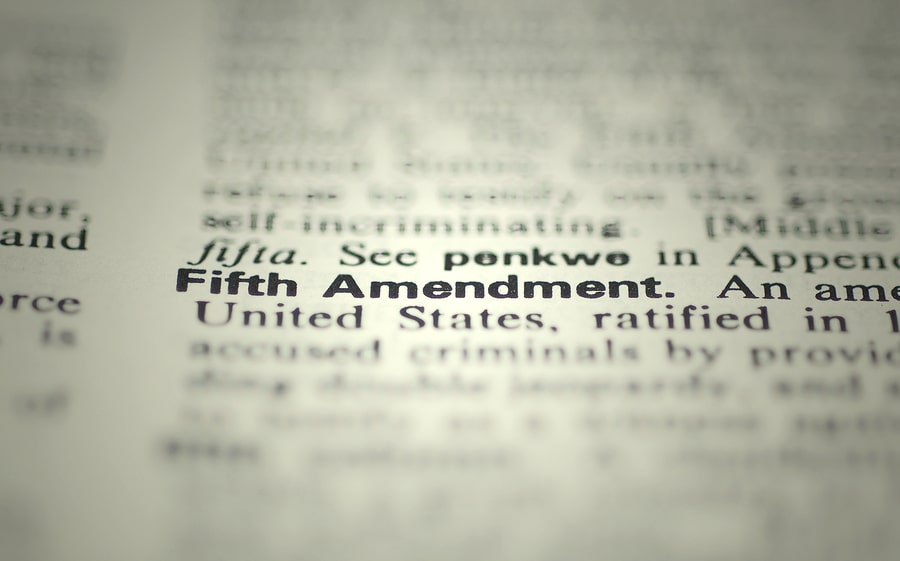Generally, everyone is aware that in any criminal questioning by police or prosecutors or criminal court proceedings, a person with any potential criminal exposure can assert his/her right to remain silent. However, this right is much broader, and to be a good citizen and be afforded constitutional rights, there are four things you must know about your right to remain silent.
First, in any proceeding, such as a divorce, a person may assert his or her Fifth Amendment privilege1 in court, deposition, or other context if any statement might cause criminal liability and ultimately a criminal charge. No one can force a statement, and if this were to occur, it would be suppressed or stricken. Asserting this right cannot be used against any defendant in a criminal trial.
Second, asserting the Fifth Amendment may be used in civil or regulatory proceedings to infer guilt. So the protection has significant tradeoffs. In addition, failure to discuss this with any insurer in a civil case may result in the policy being invalidated, as there is a duty to cooperate with the insurer under most insurance policies. So the tradeoff is protecting freedom (incarceration from criminal conviction by assertion) for potentially the loss of a companion civil case or regulatory matter (such as revocation of a professional license).
Third, when faced with the competition between civil and criminal litigation, it is possible the civil court would stay (stop) the civil litigation to allow the criminal case (or civil action) to proceed one after another, as one may resolve the other. This is a tool a seasoned attorney may use to assist a client with competing civil and criminal matters.
Fourth, even with a criminal conviction, it is admissible in a civil case where the defendant is convicted of a crime punishable by death or imprisonment for more than one (1) year. There are limits on the use of this as the conviction is generally used to prove fault in the case at hand. This is a complex analysis that may have significant positive or negative impact on civil litigation if understood and properly considered.
The Fifth Amendment Privilege against self incrimination is an important right, but must be asserted in a timely fashion understanding the potential negative obligations. We hope this blog post has helped educate you to make prudent choices about this right if it should apply to you or your general awareness of our legal system. This blog post was written by attorneys at Ciyou & Dixon, P.C. who practice throughout the State of Indiana; it is not intended as a solicitation for legal services or intended to provide legal advice. It is an advertisement.








